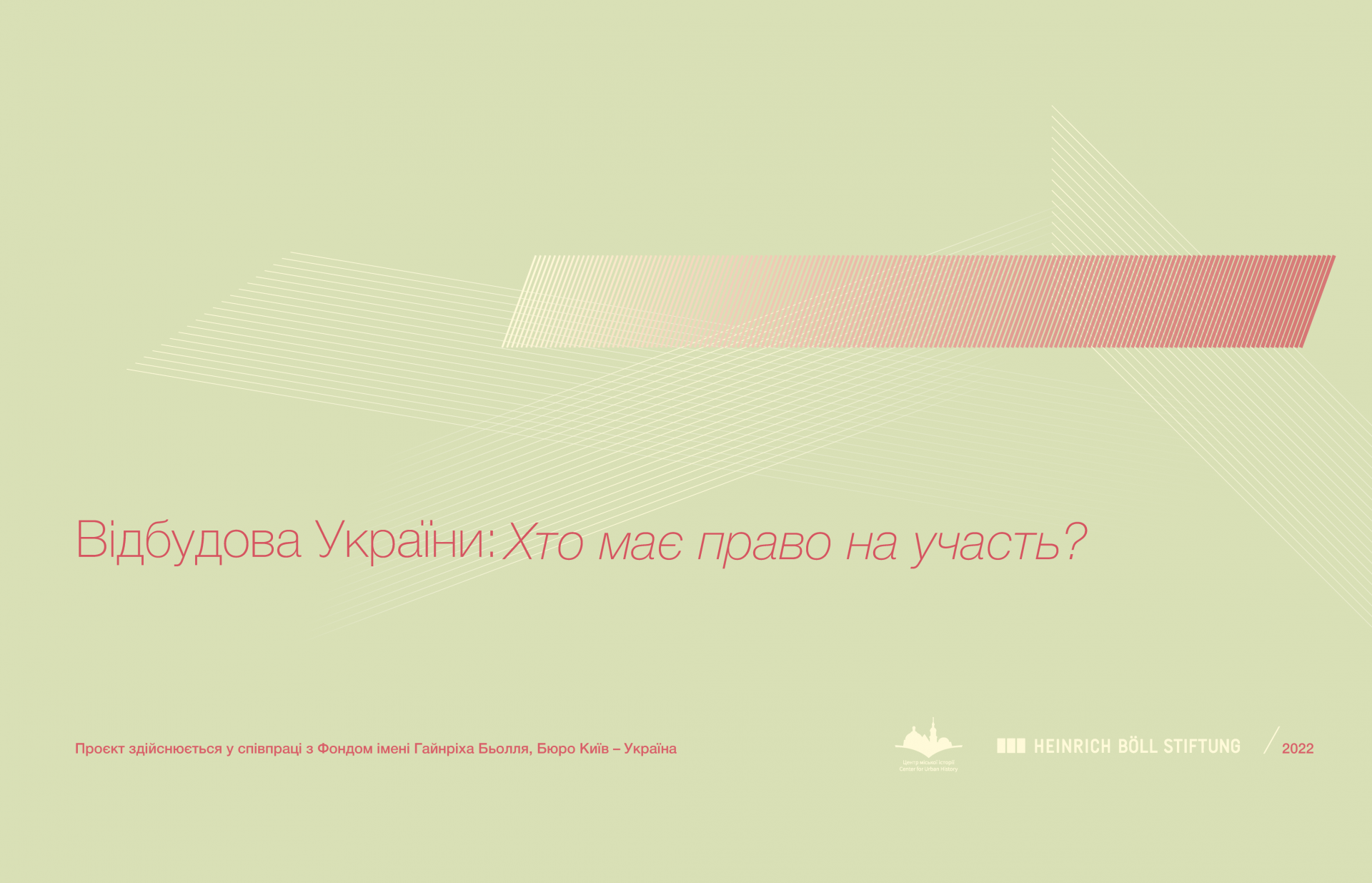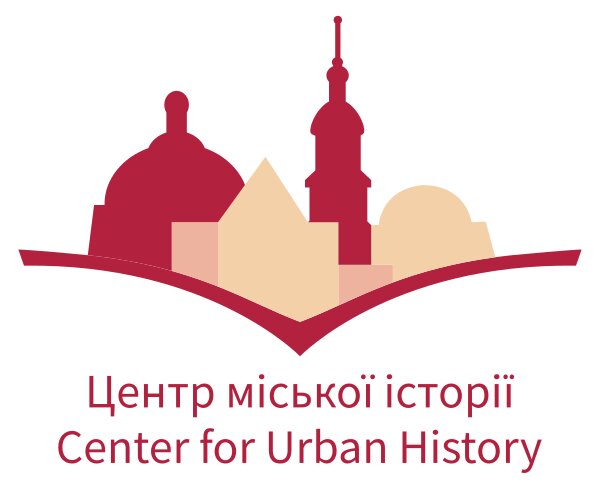Recovery of Ukraine: Who May Have the Right to Participate?
September-December 2022
In September, 2022, the Center for Urban History, in cooperation with the Heinrich Böll Foundation, Kyiv Office-Ukraine, launches a series of public events "Recovery of Ukraine: Who May Have the Right to Participate?". We are initiating a project to create a platform for the exchange of experiences and opinions on the challenges, approaches and practices of community involvement in processes related to community recovery (strategic and tactical).
Russia's full-scale invasion of Ukraine has dramatically changed the lives of Ukrainian communities. Communities have mobilized to protect, support, assist, provide logistics, and shelter. Half a year of war is behind us: decentralized decision-making, sustainable urban governance, strong civil society and the dedication of the military have made it possible to resist, adapt, continue to protect and gradually recover. Today, communities are gradually moving from tactical and reactive actions to building strategies and planning for the future.
Nowadays, many communities have begun the processes of recovery and developing strategies and plans to respond to the consequences and challenges of the war. There are quite many of them, indeed. They are related to the protection and security, reconstruction of housing and infrastructure, energy crisis, restoration of mental and physical health of citizens, forced displacement of the population, the need to provide living conditions and mobility opportunities for people with disabilities, social integration of veterans, migrants and other people who were psychologically and economically affected by the war, the need to learn to live together with people with different experiences of war, business relocation, housing for people affected by the war, equal access to social and educational services, new burdens on transport and engineering infrastructure, rehabilitation of the injured and otherwise war-affected people. At the same time, professional initiatives are emerging that offer cooperation to communities for the implementation of joint tactical and strategic projects.
Most initiatives emphasize the need for broad involvement in the discussion and implementation of community recovery projects. Some develop participatory recovery practices by trial and error. Others are initiating a process to develop a methodology for such engagement. Given the traumatic experience faced by a significant number of people before and now, as well as potential community conflicts related to the different cultural and social experiences of local residents, persons from affected communities, members of the military, and volunteers, there is a need to review and adapt approaches to local community engagement processes with account for the need to build trust in the community. On the other hand, since 2014, we have had the experience of communities and initiatives that already have gained the important experience of involvement in the conditions of war, conflict, and reliving the trauma.
During a series of public discussions and presentations within the framework of "Recovery of Ukraine: Who May Have the Right to Participate?" we will gather diverse experiences of building dialogue in hromadas and communities during and after military conflicts or severe social and cultural perturbations, and jointly develop and discuss key principles and values to be used by all key actors as a basis to discuss future community recovery. We will try to find answers to the following questions:
- What social and cultural changes are taking place in our communities during the war? How will these transformations affect the process of community participation?
- How to build dialogue in communities with different cultural and social backgrounds? How to help survive a traumatic experience, establish a conversation and give impetus to thinking about the future?
- What can we learn from the historical and international experience of engaging residents in the process of urban recovery after war or catastrophic social and physical disturbances?
- How to engage residents in planning the future recovery of our communities?
- What questions do we have to pose to ourselves? What new practices do we have to find? How to be inclusive? How to develop key principles and approaches to engagement in our communities?
The program includes five public events in the format of presentations, panel discussions, and a mini workshop, as well as five short educational video lectures.
PROJECT TEAM
- Project curator Maria Hryshchenko
- Production: Victoria Panas
- Counseling: Sofia Dyak, Iryna Sklokina
- Communication support: Mariana Mazurak
- Logistics and technical support: Sofia Andrusyshyn, Oleksandr Dmytriev
- Design: Oleksandra Davydenko
The project is carried out in cooperation with the Heinrich Böll Stiftung, Kyiv Office – Ukraine.


